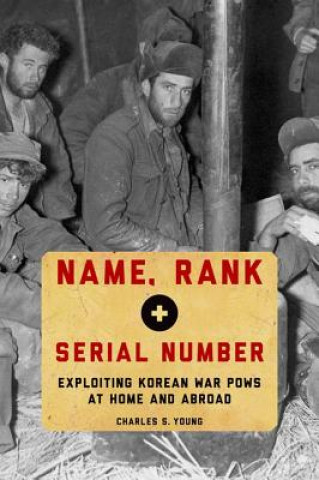
Kód: 04516740
Name, Rank, and Serial Number
Autor Charles S. Young
Vietnam POWs came home heroes, but twenty years earlier their predecessors returned from Korea to shame and suspicion. In the Korean War (1950-1953) American prisoners were used in propaganda twice, first during the conflict, then ... celý popis
- Jazyk:
 Angličtina
Angličtina - Väzba: Pevná
- Počet strán: 256
Nakladateľ: Oxford University Press Inc, 2014
- Viac informácií o knihe

Mohlo by sa vám tiež páčiť
-

Sapiens
12.23 € -

Handbook Of The State Of Georgia, Accompanied By A Geological Map Of The State (1876)
51.36 € -

Soybean Utilization
69.96 € -

Last Bus to Coffeeville
11.32 € -13 % -

Awakening
16.07 € -13 % -

Happily Ever After
15.56 € -

Leuchtturm am Michigan - und andere Erzahlungen
31.34 €
Darčekový poukaz: Radosť zaručená
- Darujte poukaz v ľubovoľnej hodnote, a my sa postaráme o zvyšok.
- Poukaz sa vzťahuje na všetky produkty v našej ponuke.
- Elektronický poukaz si vytlačíte z e-mailu a môžete ho ihneď darovať.
- Platnosť poukazu je 12 mesiacov od dátumu vystavenia.
Viac informácií o knihe Name, Rank, and Serial Number
Nákupom získate 230 bodov
 Anotácia knihy
Anotácia knihy
Vietnam POWs came home heroes, but twenty years earlier their predecessors returned from Korea to shame and suspicion. In the Korean War (1950-1953) American prisoners were used in propaganda twice, first during the conflict, then at home. While in Chinese custody in North Korea, they were pressured to praise their treatment and criticize the war. When they came back, the Department of the Army and cooperative pundits said too many were weaklings who did not resist communist indoctrination or "brainwashing." Ex-prisoners were featured in a publicity campaign scolding the nation to raise tougher sons for the Cold War. This propaganda was based on feverish exaggerations that ignored the convoluted circumstances POWs were put in, which decisions in Washington helped create. POWs became pivotal to the Korean War after peace talks began in summer 1951. Since fighting had stalemated, both sides raced to win propaganda victories. The Chinese publicized American airmen who confessed to alleged germ warfare atrocities. American commanders worked to discredit communism by encouraging thousands of North Korean and Chinese prisoners to defect. Clandestine agents and a fraternity of anticommunist prisoners launched a violent campaign to inflate the number of POWs refusing repatriation after the war. Armistice negotiations floundered while China and North Korea demanded their soldiers back. United States delegates held out for what they called "voluntary repatriation," but in reality, thousands of prisoners were terrorized into renouncing their right of return. American POWs remained captive for eighteen more months of fighting over the terms of a compromised prisoner exchange. In the United States, details of the voluntary repatriation policy were suppressed. Name, Rank, and Serial Number explains how this provides new insight into why Korea became "the forgotten war."
 Parametre knihy
Parametre knihy
Zaradenie knihy Knihy po anglicky Humanities History History: earliest times to present day
91.81 €
- Celý názov: Name, Rank, and Serial Number
- Podnázov: Exploiting Korean War POWs at Home and Abroad
- Autor: Charles S. Young
- Jazyk:
 Angličtina
Angličtina - Väzba: Pevná
- Počet strán: 256
- EAN: 9780195183481
- ISBN: 0195183487
- ID: 04516740
- Nakladateľ: Oxford University Press Inc
- Hmotnosť: 510 g
- Rozmery: 236 × 163 × 23 mm
- Dátum vydania: 05. June 2014
Obľúbené z iného súdka
-

Learn to Read Ancient Sumerian
31.74 € -

Russian Journal
14.25 € -23 % -

King's Two Bodies
28.61 € -7 % -

Heart of Europe
20.62 € -23 % -

Armies of Castile and Aragon 1370-1516
17.69 € -4 % -
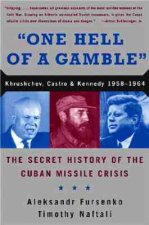
One Hell of a Gamble
27.09 € -17 % -

Rise and Fall of Ancient Egypt
18.49 € -23 % -

Guns, Germs, and Steel
17.08 € -

The Origins of Totalitarianism
10.51 € -21 % -
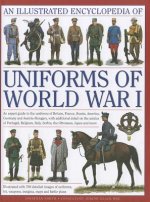
Illustrated Encyclopedia of Uniforms of World War I
21.73 € -23 % -

The Art of Combat
35.28 € -

On Tyranny
10.10 € -24 % -
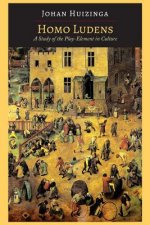
Homo Ludens
12.02 € -

Tuesdays With Morrie
10.10 € -24 % -

History of the Decline and Fall of the Roman Empire
14.25 € -23 % -

King Leopold's Ghost
13.24 € -16 % -

Meditations
8.99 € -19 % -

Streams of Gold, Rivers of Blood
36.29 € -
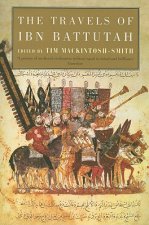
Travels of Ibn Battutah
12.12 € -23 % -

Augustus
16.37 € -23 % -

Age Of Capital
16.37 € -23 % -

Egyptian Book of the Dead: The Book of Going Forth by Day : The Complete Papyrus of Ani Featuring Integrated Text and Full-Color Images (History ... M
32.35 € -9 % -
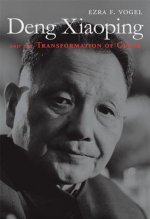
Deng Xiaoping and the Transformation of China
32.75 € -

Age Of Extremes
17.18 € -20 % -

John Skylitzes: A Synopsis of Byzantine History, 811-1057
38.01 € -16 % -

Arms and Armour of Late Medieval Europe
11.01 € -23 % -

Alexander the Great
16.37 € -22 % -

End of Days
7.88 € -22 % -

Shake Hands With The Devil
14.25 € -23 % -

Complete Roman Army
21.73 € -23 % -

Distant Mirror
14.25 € -23 % -

Fall of the Roman Empire
25.98 € -

Fifties
19.40 € -15 % -

After the Ice
18.49 € -23 % -

Histories
5.96 € -19 % -

Savage Continent
16.37 € -23 % -

Oxford IB Diploma Programme: The Cold War: Superpower Tensions and Rivalries Course Companion
52.47 € -

Age Of Empire
16.37 € -23 % -

Pompeii
12.12 € -23 % -

Life in a Cave
7.07 € -4 % -

Oxford Illustrated History of Prehistoric Europe
34.98 € -19 % -

On the Ocean
39.53 € -7 % -

Flowers of Battle The Complete Martial Works of Fiore dei Liberi Vol 1
139.53 € -

On Ancient Warfare
42.86 € -1 % -

Access to History for the IB Diploma: Causes and effects of 20th-century wars Second Edition
38.92 € -

Safe Area Gorazde
20.62 € -23 % -

Yoga Body
18.70 € -10 % -

Fear and Loathing on the Campaign Trail '72
14.25 € -23 % -

Fall of Carthage
16.37 € -23 %
Osobný odber Bratislava a 2642 dalších
Copyright ©2008-24 najlacnejsie-knihy.sk Všetky práva vyhradenéSúkromieCookies



 21 miliónov titulov
21 miliónov titulov Vrátenie do mesiaca
Vrátenie do mesiaca 02/210 210 99 (8-15.30h)
02/210 210 99 (8-15.30h)